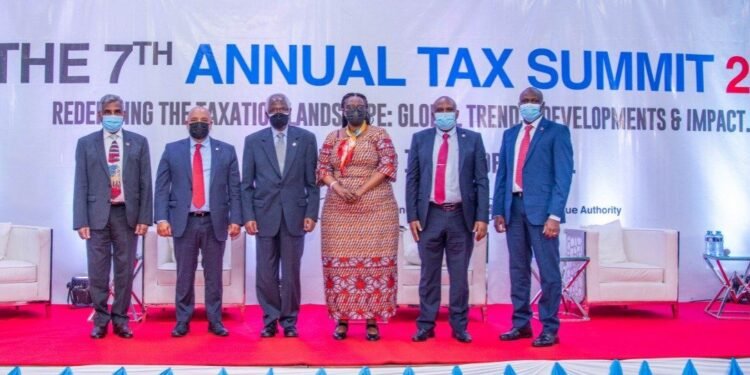
Nairobi – The Executive Secretary of ATAF, Logan Wort, presented a six-pillar approach to combatting Illicit Financial Flows from Africa during the 7th Annual Tax Summit organised by the Kenya Revenue Authority from 13 to 14 October 2021.
In his address to the 5th plenary session of the Summit where panelists from various parts of the continent shared experiences in fighting IFFs, Wort underscored the importance of modernised legislative frameworks, capacity building initiatives, inter-agency collaboration and structured exchange of information mechanisms, as the guiding principles of ATAF’s approach to stemming IFFs.
The approach itself focuses on the following six essential pillars:
- Cross border transactions – This consists in reviewing existing legislation and introducing new and revised rules to improve risk assessment processes, capacitate tax officials in transfer pricing and other international tax knowledge.
- Transparency and treaties – it includes the implementation of beneficial ownership standards, voluntary disclosure programmes, exchange of information and an improved use of ATAF’s model treaty.
- Trade and Customs – To develop an understanding of the high estimates of IFFs through trade mis-invoicing, under the relationship between – ‘IFFs’, ‘trade mis-invoicing’ and ‘trade discrepancy’.
- Data and Statistics – The Collection of data on ATAF project implantation and the analyses of the results of ATAF’s interventions in turn, feed into Research initiatives and the building of Country Profiles.
- Inter-agency cooperation at a national level – ATAF deems it critical to develop effective ways in which agencies at a national level can work together in combating financial crime to improve results—starting by bringing in customs and income tax departments together, and bringing tax administrations closer to cooperating with financial institutions such as banks and financial intelligence.
- The last but not least pillar of ATAF’s approach is the establishment of robust Exchange of Information systems with external stakeholders and the acquisition of data through real-time systems.
Over the next few months, ATAF will be implanting these principles alongside partner organisations.
“We are confident that these measures will result in additional revenue for countries and combatting IFFs on the continent”, said Wort. “The challenge is huge for us all, but not insurmountable if we are to focus efforts on South-South tax cooperation”, he added.
KRA’s Annual Tax Summit brought together tax officials and experts from the continent to reflect on the theme of Revenue Mobilisation within a rapidly evolving taxation landscape: Global Trends, Analyses & Resolutions.










